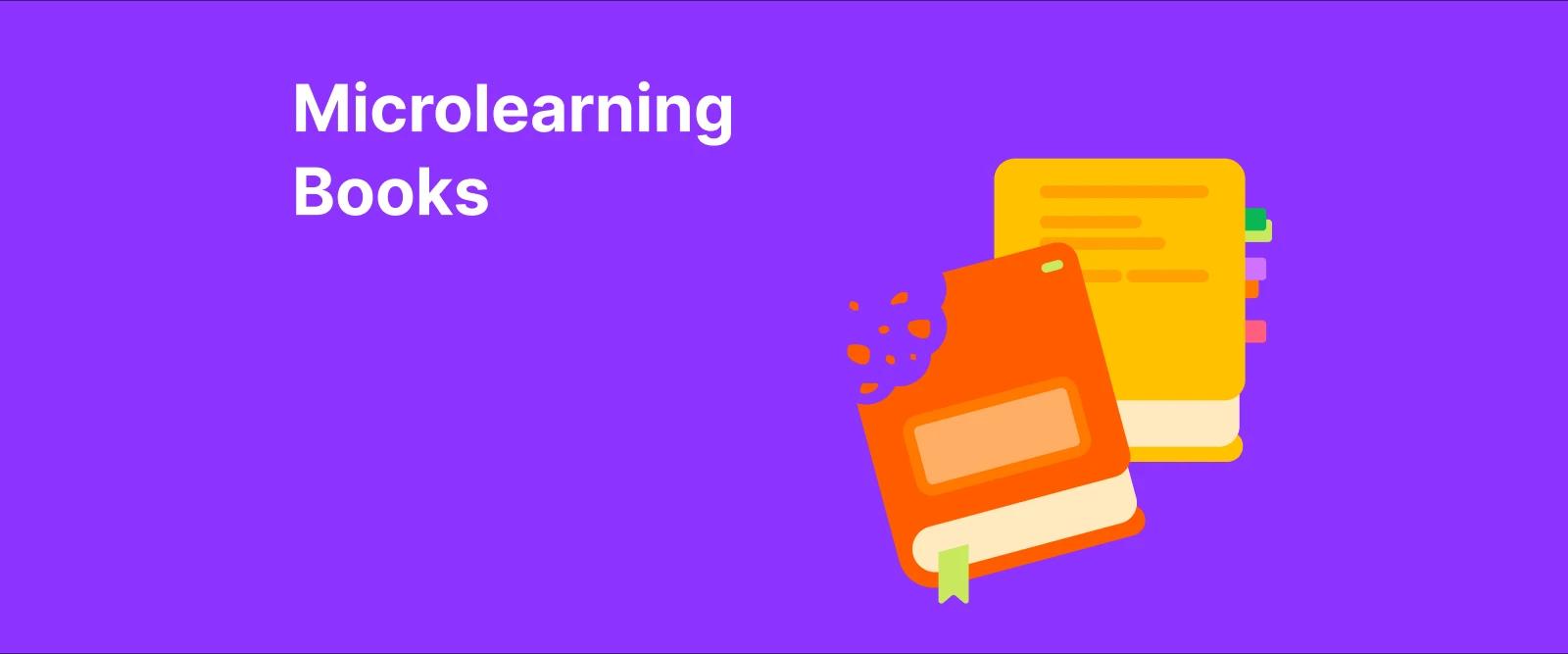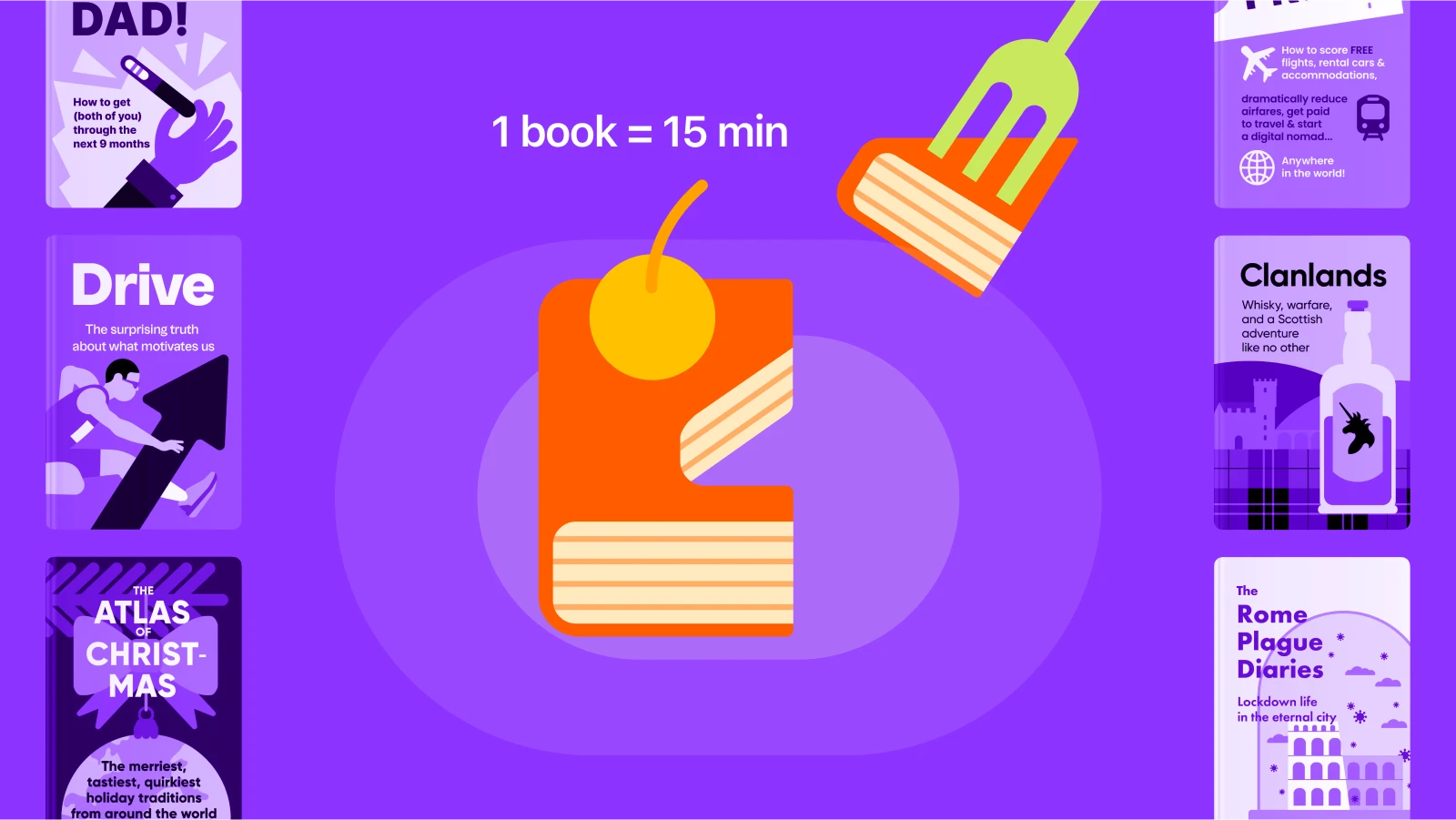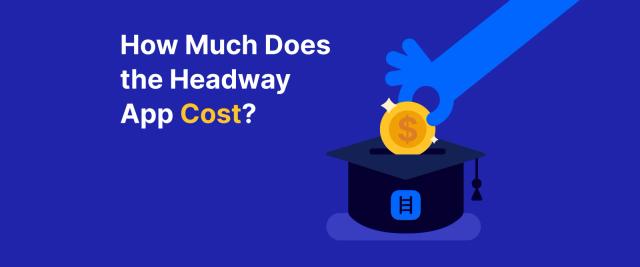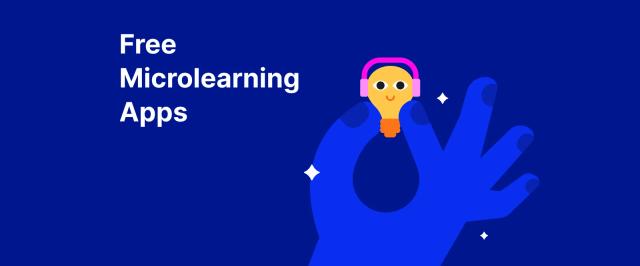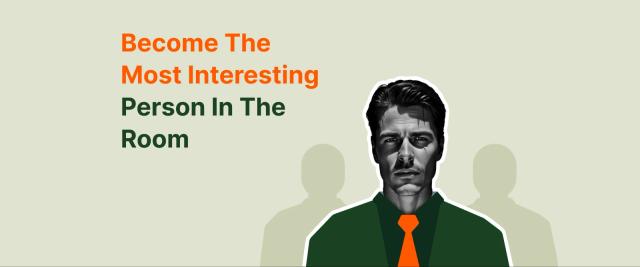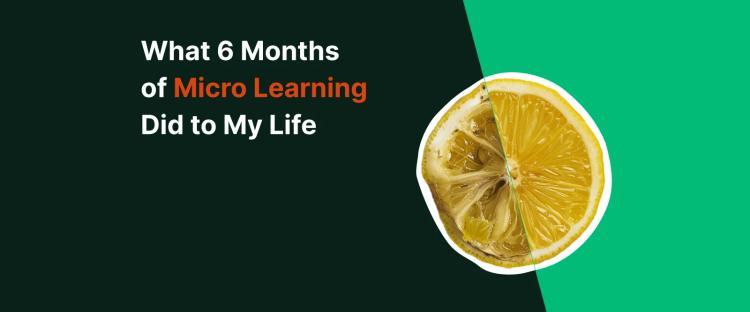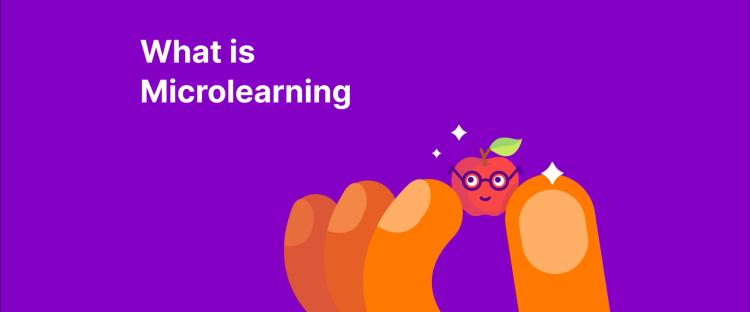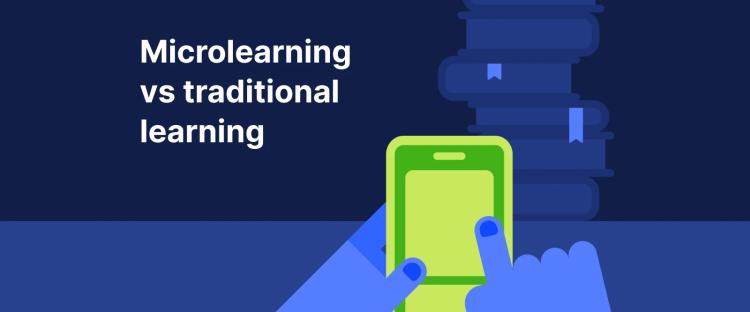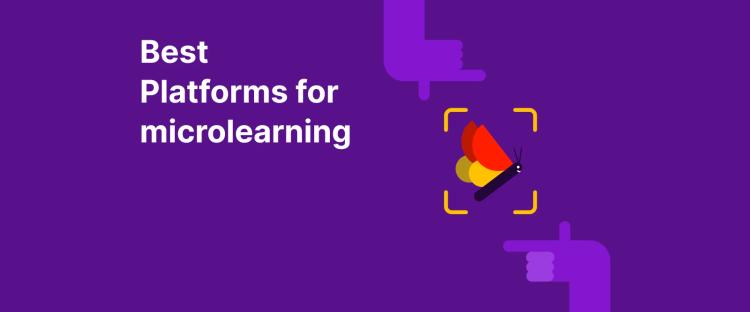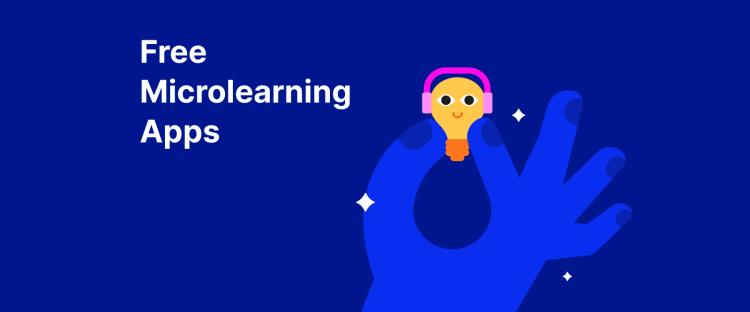Ever feel like there's never enough time to learn something new? Finding time for deep learning can seem impossible. But what if you could make it fit into your schedule? It's possible with microlearning books — a game-changer for busy minds.
Microlearning breaks big topics into easy-to-understand pieces, so adding learning into your daily routine is simpler.
Your time is precious, and this approach respects that. Headway builds on this, as our microlearning app is loaded with bite-sized book summaries that make it easy to keep learning, even when you're busy.
For example, Barbara Oakley's 'A Mind for Numbers' shows how breaking learning into smaller parts can help you understand even the toughest subjects.
Here you'll see how microlearning can help you achieve more with less time. Experience the power of microlearning books through advice from bestselling experts like:
Chris Bailey
Barbara Oakley, PhD
Scott H. Young
📘 Download the Headway app and make use of microlearning books to get the most out of your day!
Five best microlearning books: Quick picks
If you're short on time, here are five standouts worth checking out. Read to the end to discover the full list and learn more about each one!
| Microlearning book | Author(s) | What you'll learn |
|---|---|---|
'Ultralearning' | Scott H. Young | Ways to master hard skills through self-directed learning. |
'The Microlearning Guide to Microlearning' | Carla Torgerson | Practical ways to design and apply microlearning programs. |
'Microlearning: Short and Sweet' | Karl M. Kapp, Robyn A. Defelice | Real case studies on how microlearning works in practice. |
'Just One Thing — Microlearning, A Practitioner's Guide' | Raptivity | A guide to applying microlearning using the best practices. |
'The Art of Learning' | Josh Waitzkin | How self-reflection can help you master learning. |
What is a microlearning book? Definition and explanation
Definition: A microlearning book delivers information in small chunks that are easy to consume, whether you read or listen. Instead of long chapters, microlearning books present key ideas in short form, making learning faster.
These books cover many different topics, but they all present the main points and insights in a way that's easy to remember. Whether you want to learn a new skill or improve your productivity, they let you progress step by step.
Ten best microlearning books for new learners to check out in 2025
New to bite-sized learning? These 10 books explain just what is microlearning all about, along with its key benefits, including:
Gamification
Personalized learning methods
Mobile learning
E-learning
1. 'The Microlearning Guide to Microlearning'
Carla Torgerson's 'The Microlearning Guide to Microlearning' is perfect for anyone who wants to create microlearning experiences rather than just encounter them. She explores how this approach works across different environments.
"Microlearning is not just a trend; it's a way to transform the learning experience into something more immediate and impactful."
Torgerson emphasizes the power of concise content to make learning or e-learning more accessible and engaging.
Themes: Microlearning design, Education, Learning strategies
Best for: Educators, instructional designers, and startup instructors
Key takeaway: Step-by-step guidance on creating effective microlearning programs
2. 'Microlearning: Short and Sweet'
Karl M. Kapp and Robyn A. Defelice prove that shorter and focused learning sessions can improve knowledge retention in 'Microlearning: Short and Sweet.'
"Short bursts of learning are often more effective than lengthy sessions when it comes to information retention."
This book shares insights into the design principles of microlearning. It also offers advice on how to use them in educational and corporate settings.
Themes: Learning design, Engagement, Instructional methods
Best for: Corporate trainers and educators looking to adopt microlearning
Key takeaway: Case studies and practical examples for real-world application
📘Download Headway for a library full of microlearning-focused book summaries.
3. 'Ultralearning'
Scott H. Young shows how to master hard skills through intense, self-directed learning in 'Ultralearning.' The book outlines strategies to dive deep into subjects, optimize learning methods, and push your limits.
"The key to ultralearning is to embrace discomfort, to push yourself beyond what feels comfortable."
The author believes that building a strong focus and having a curious mindset is what matters most. This is an ideal pick for anyone who wants to learn efficiently.
Themes: Self-directed learning, Skill acquisition, Deep focus, Talent development
Best for: People looking to learn a new skill or subject on their own
Key takeaway: Practical tips on structuring your learning for maximum impact
If you're tired of the slow-paced e-learning process, check out the 'Ultralearning' summary on Headway. You'll learn how to concentrate better and make your efforts productive.
4. 'Just One Thing – Microlearning, A Practitioner's Guide'
Raptivity's 'Just One Thing – Microlearning, A Practitioner's Guide' cuts through theory to give you practical microlearning strategies you can start using today.
"Effective microlearning is about giving just enough information to spark curiosity without overwhelming the learner."
This book provides practical strategies for creating effective microlearning content. It also offers tips that any professional can start using right away!
Themes: Practical application, Microlearning implementation, Tips & tricks
Best for: Instructional designers and L&D professionals who wants to learn new hard and soft skills.
Key takeaway: Tons of simple strategies to make your learning more effective
5. 'The Art of Learning'
Josh Waitzkin draws from his chess and martial arts background to show how learning itself is a skill you can master in 'The Art of Learning.'
"The ability to learn is the most important skill we can possess."
The author talks about the importance of finding your own learning style. Then, you can adjust to it and improve your efficiency.
Themes: Mastery, Self-reflection, Learning process
Best for: Learners who want to succeed in any field; ideal for those interested in strategy-based learning
Key takeaway: Insights for overcoming challenges and setbacks in the learning journey
📘Love microlearning books? Headway's library has hundreds to explore.
6. 'A Mind for Numbers'
Barbara Oakley, an engineering professor, shares strategies for succeeding in math and science in 'A Mind for Numbers.' Even if you've struggled before, it's still a great reading choice!
"The key to mastering difficult subjects is not innate talent, but the ability to learn effectively."
Based on her own experience, Oakley introduces techniques like "chunking" information, balancing focused, and relaxed thinking to improve learning.
Themes: Math mastery, Science learning, Cognitive strategies
Best for: Students and professionals aiming to improve their analytical skills
Key takeaway: Active learning and understanding how your brain processes information
7. 'Atomic Habits' by James Clear
James Clear breaks down how small habits compound over time to produce remarkable results in 'Atomic Habits.'
"You do not rise to the level of your goals. You fall to the level of your systems."
Based on scientific research, Clear provides a practical framework for developing good habits and breaking bad ones. He also advises on mastering small behaviors that lead to remarkable results.
Themes: Habit formation, Behavioral science, Personal development
Best for: Individuals seeking to change their habits and routines
Key takeaway: The importance of systems over goals in achieving long-term success
8. 'Design for How People Learn'
Julie Dirksen explores the science of learning and offers practical strategies. You’ll learn how to create effective educational experiences in 'Design for How People Learn.'
"Learning is a journey, not a destination."
Drawing from her experience in instructional design, Dirksen stresses the importance of understanding how people learn to create engaging and effective materials.
Themes: Instructional design, Cognitive psychology, Adult learning
Best for: Educators, instructional designers, creators of learning experiences
Key takeaway: Effective learning design is a bridge between theory and practice; it aligns with how people naturally learn
9. 'The Modern Learning Ecosystem'
JD Dillon presents a fresh approach to L&D in today's rapidly evolving workplace in 'The Modern Learning Ecosystem.' She draws her experience from over two decades of working with organizations like Disney and Kaplan.
"Learning is not something we do to people; it's something we do with them."
The book focuses on incorporating learning into daily workflows, going beyond traditional learning to create a continuous learning environment.
Themes: Workplace learning, Continuous development, L&D strategy
Best for: Learning and development professionals, HR leaders, and Organizational change agents
Key takeaway: A modern learning mindset is key to adapting and thriving in the face of workplace disruptions
📘 Find microlearning books that match your interests on Headway today.
10. 'Hyperfocus'
Chris Bailey explores the science of attention and its impact on productivity in 'Hyperfocus.' He introduces two modes of focus: hyperfocus and scatterfocus.
"We are what we pay attention to."
Bailey provides practical advice on managing these modes to enhance focus and creativity in our daily lives.
Themes: Attention management, Productivity, Creativity
Best for: Individuals seeking to improve focus and reduce distractions.
Key takeaway: The ability to manage attention beats simply maintaining long-term productivity.
Stop letting distractions, like scrolling on social media apps, overwhelm you. Headway's 'Hyperfocus' summary has some tips and tricks on how to manage multitasking.
Make a micro-step to your microlearning experience with Headway!
We understand the value of learning in small, manageable pieces. Our app is built to help you grow through quick, powerful nonfiction summaries. With Headway, you can enjoy the benefits of microlearning in an engaging user experience format.
The Headway app isn't just about reading — it's about making learning a seamless part of your daily routine. We offer personal progress tracking, insightful summaries, and an intuitive design in one application.
Need more proof? Check out these stories by our users:
📘Whether you have 15 minutes or a few hours, download the Headway app.
We'll help you make the most of every moment and transform your phone into a tool for continuous growth!
Frequently asked questions about microlearning books
How can I start microlearning?
Starting microlearning is simpler than you might think. First, take whatever you want to learn and break it into bite-sized pieces. It can be 10 minutes of using a microlearning app during your morning coffee, listening to educational podcasts or audiobooks on your commute, or squeezing in short online courses between meetings. Stay consistent to make progress.
Is microlearning effective?
Yes, microlearning is effective. It keeps you focused, reduces mental overload, and improves memory retention. By breaking content into small, digestible chunks, you can learn at your own pace. This method makes it easier to remember the material and apply it to real-life situations.
Are microlearning book summaries worth it?
Yes, it is worth it. Microlearning book summaries allow you to quickly grasp key ideas, even when you are short on time. You get concentrated information that you can immediately put into practice, train your memory, and create your own notes for deeper learning. Ideal for busy professionals and ongoing personal development.
What are the disadvantages of microlearning?
One downside of microlearning is its lack of depth on complex subjects. It can also be challenging for learners to stay on track, as microlearning requires strong self-discipline. Without proper focus, learners may miss important details or become distracted by other tasks.
What is the science behind microlearning?
Microlearning is based on cognitive load theory, which suggests that breaking down information into small pieces reduces cognitive overload. This method makes it easier for the brain to process and retain information. Techniques like spaced learning and repetition further help improve long-term memory and recall.
Is TikTok microlearning?
Not exactly. TikTok's short videos are similar to microlearning, but the main goals is entertainment. True microlearning is created with specific educational goals and clear learning objectives. Still, educational creators on TikTok can turn it into an online learning tool.

